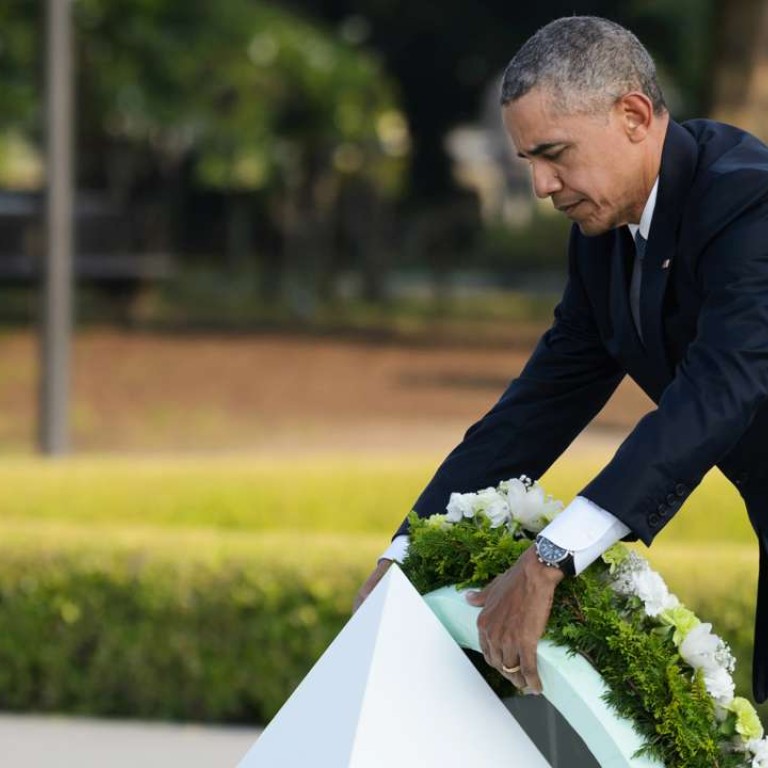
Obama’s visit to Hiroshima must be followed up by action to reduce stockpile of nuclear weapons
US president’s heart appears to be in the right place but America and other powers show no inclination towards ending threat of atomic Armageddon
There was no more fitting place than Hiroshima for US President Barack Obama to voice his hope for a world without nuclear weapons. Never before had a serving American leader from the only country to have used an atomic bomb during war visited the place where the first attack occurred. His sentiments last Friday were appropriately poignant, his calls for a “moral awakening” and reduction in global stockpiles much needed. Yet for all the significance, the occasion will remain nothing more than symbolic unless it is followed up with action.
Obama’s presidency ends in less than eight months and he is mindful of a legacy. There would be no
better way to be remembered than for setting the world on a nuclear-free path. But matching words with reality when only a handful of nations that have acquired atomic arms have been willing to scrap them makes that unlikely. The president well knows that: his speech in Hiroshima reprised a similar one in Prague seven years ago and the world is still no closer to attaining that goal.
Progress was made in 2010 when a deal to cut the number of strategic warheads was concluded between the US and Russia, which together have 93 per cent of the world’s 15,000 arms. An agreement was struck last year to prevent Iran from developing weapons. But despite an international acceptance of the necessity of non-proliferation, stockpiles remain intact and modernisation programmes are under way. North Korea’s efforts to join the nuclear club have gone unchecked.
The US and Russia should be setting an example, yet with relations having soured, are unwilling to do so. Obama, whose 2009 Nobel Peace Prize was in part awarded for his position on nuclear non-proliferation, has undermined his own standing with a US$1 trillion programme to replace ageing arms with more advanced ones over the next 30 years. American intercontinental ballistic missiles remain on hair-trigger alert as do their Russian counterparts.
More than 200,000 people were killed when the US dropped atomic bombs on Hiroshima and days later, Nagasaki. Those attacks almost 71 years ago prompted Japan’s second world war surrender and started the movement to eliminate nuclear weapons. Obama’s hour-long visit after the G7 summit in Ise-Shima was accompanied by debate on whether he should pass judgment on the bombings or even apologise; he did neither. His trip centred on making a case for why nations should destroy their arsenals. It is a worthy sentiment when backed by resolve.

